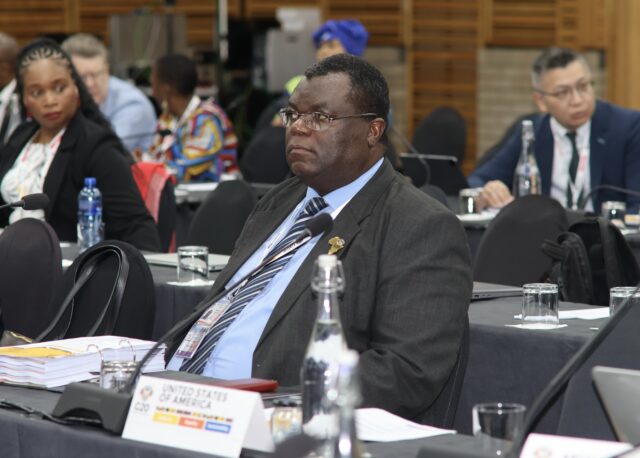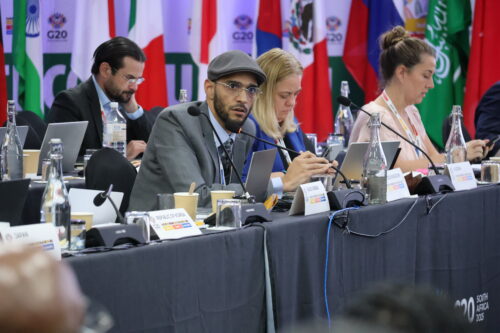
Skukuza – A new report presented at the 3rd Technical Meeting of the G20 Anti-Corruption Working Group, currently underway in Skukuza, Mpumalanga, has revealed that G20 member states have made significant progress in implementing the 2019 High-Level Principles for the Effective Protection of Whistleblowers. However, the report also highlighted persistent challenges in enforcement, data collection, and the scope of coverage.
The report, a key priority for South Africa’s 2025 G20 Presidency, confirms that most G20 countries now possess comprehensive whistleblower protection laws. This is central to promoting integrity in both the public and private sectors and is recognized as an essential tool in the global fight against bribery and corruption. Whistleblowers, the report noted, often expose fraud and corruption at the risk of their financial stability and personal safety.

The review, based on country self-reporting and a questionnaire, analyzed the implementation of the 2019 Principles across five pillars.
Pillar 1 & 2: Legal Frameworks and Scope
A majority of G20 countries have legislative frameworks in place, with some relying on standalone laws and others using a combination of multiple sources, as seen in examples like Portugal and South Africa. The scope of protected disclosures commonly covers issues such as fraud, corruption, health and safety, and environmental violations. Encouragingly, protection often extends beyond current employees, with half of the surveyed countries reporting that their frameworks cover third persons associated with the reporting person, or individuals in advanced recruitment or contractual negotiations. Most countries also require disclosures to be made in good faith and/or with a reasonable belief.
Pillar 3 & 4: Reporting and Remedies
In terms of reporting procedures, most G20 countries permit whistleblowers to report directly to law enforcement or competent authorities without first exhausting internal channels. Confidentiality for the whistleblower’s identity and report details is mandated in most countries.
Crucially, retaliation is prohibited in all twenty-one responding countries, with sanctions including civil, administrative, and criminal penalties. Remedies for whistleblowers often include compensation and reinstatement. A significant finding from the report shows that two-thirds of respondents indicated that their framework shifts the burden of proof to the party accused of taking detrimental action against the reporting person.
Pillar 5: Enforcement and Evaluation
Over half of the G20 countries have dedicated bodies to implement whistleblower protections, though some rely on multiple prescribed regulators. However, the report points to a major challenge in periodic assessment and data collection. Data on whistleblower activity is uneven, and only a handful of countries provided data on the percentage of cases linked to whistleblower protection. While a number of countries are assessing their frameworks, only six countries (India, Indonesia, Republic of Korea, Portugal, Spain, and France) indicated that their frameworks are assessed on a regular, periodic basis.
To address the identified gaps, the ACWG proposed several areas for future action, such as extending protections to former employees, third parties, and non-traditional work arrangements. It was also proposed that whistleblowing laws should require regular evaluations, periodic assessments, and a clear mandate for governments to maintain, publish, and retain relevant data, among others.
Speaking on the sidelines of the conference, the Acting Director-General of the Department of Public Service and Administration, Mr. Willie Vukela, said, “The G20 Accountability Report confirms significant legal safeguards are now in place, but also highlights ongoing challenges in data collection and consistent enforcement capacity. We are confident that the collective resolve of the G20 ACWG will ensure these gaps are effectively closed to secure greater protection for whistleblowers globally.”








